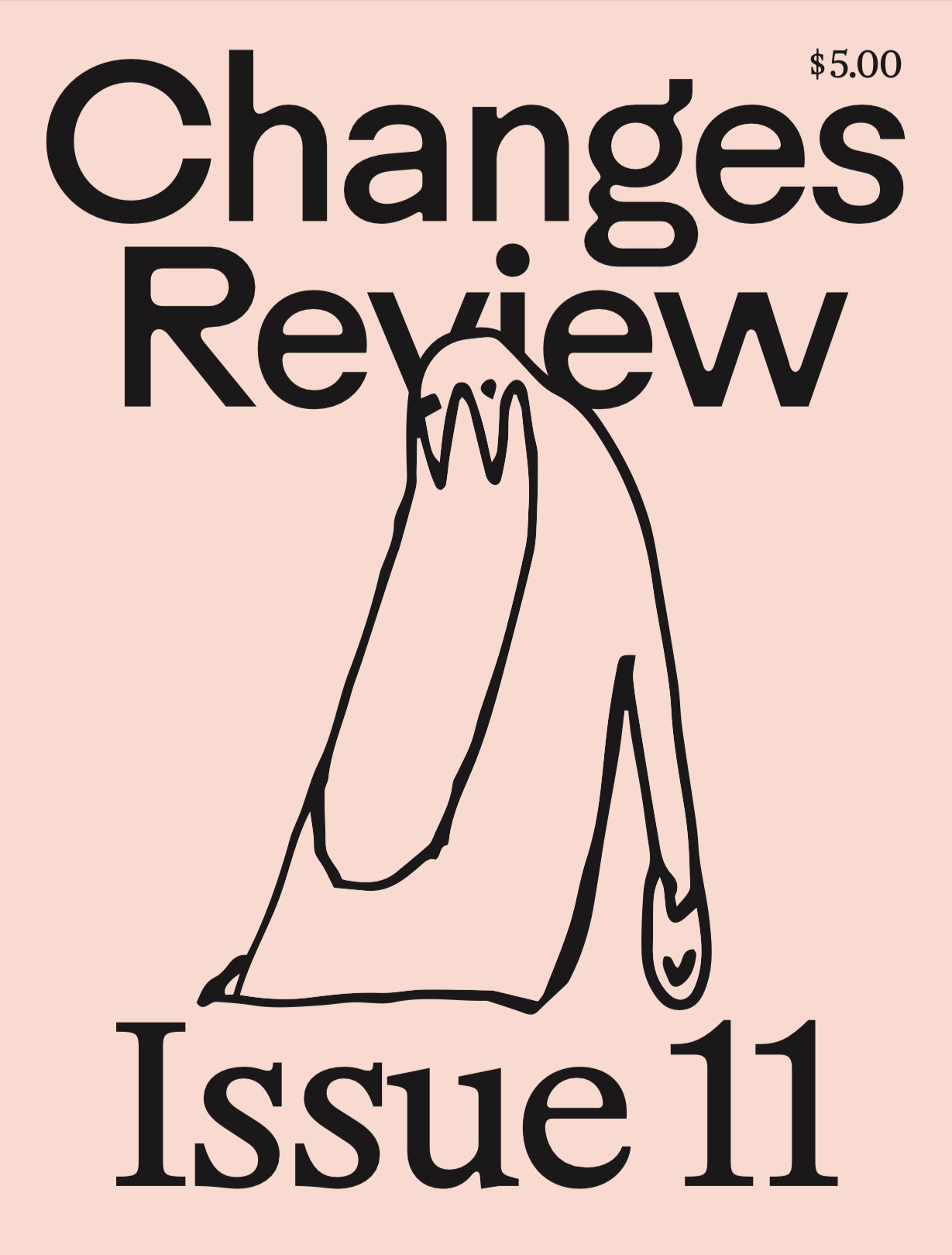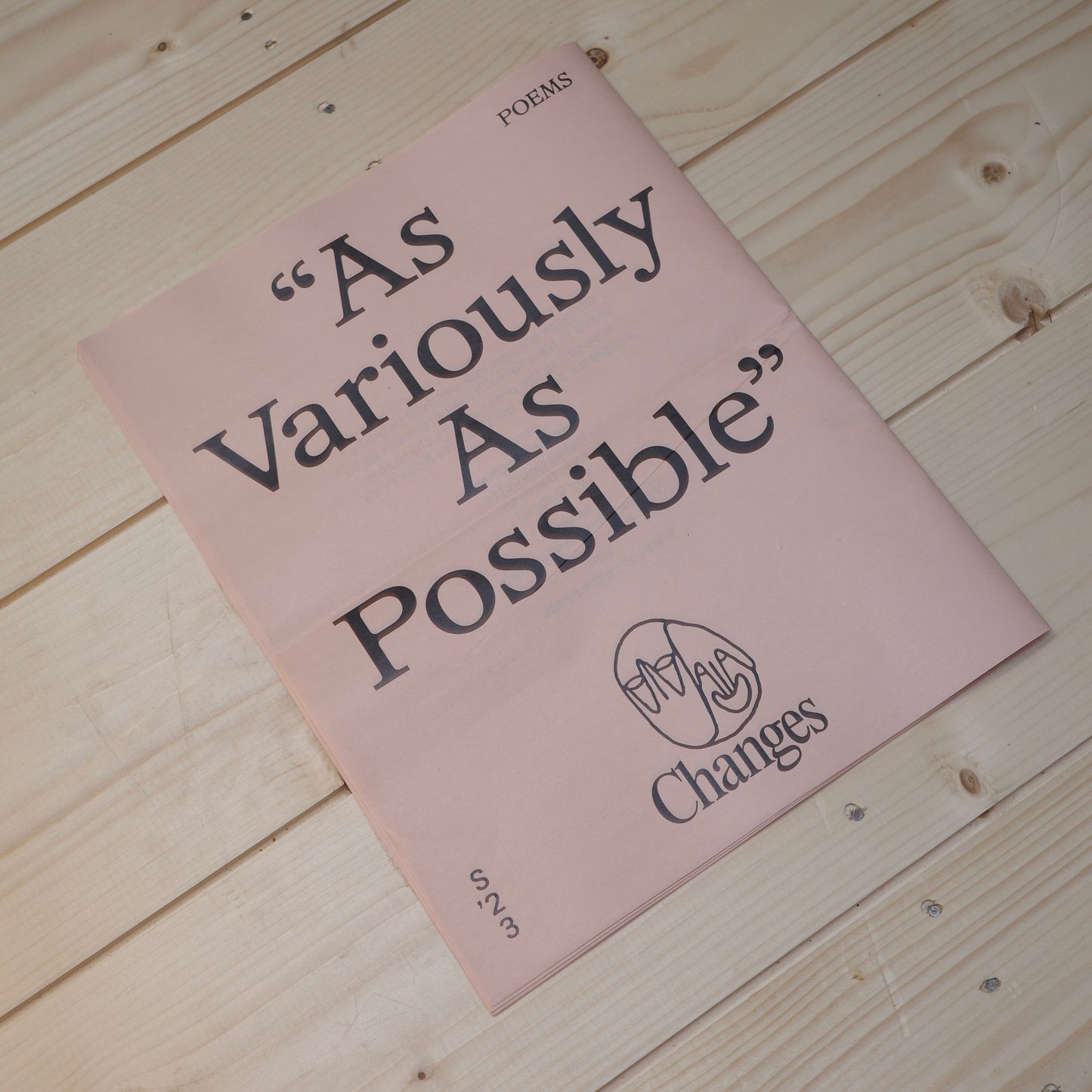Changes Review Issue 11
Changes Review Issue 11
Couldn't load pickup availability
In this issue of Changes Review, Benjamin Krusling unleashes a cry—“brooklyn, gaza close up !” On the Brooklyn side, Krusling sees the Sun Ra Arkestra, music so good it “drowns cynicism.” That idea that art is or can be part of the process of making the world new, that art gifts the world a different image of the future, feels almost ruthlessly utopian—right now, in hell. It’s the conviction that characterizes Peter Weiss’s Aesthetics of Resistance, whose characters reflect on art and writing in the process of their cross-continental struggle against international fascism. I’m sitting with that conviction a lot right now; there’s an echo of it in the effort that these writers make to find insight, strength and movement through aesthetics in or after nightmare.
In Brandon Shimoda’s “Rest House” poems, which “return to Nagasaki,” he observes “refreshment / that might stun [corpses] / back into existence.” Rainer Diana Hamilton explores sound as a medium of accidental realization—an intrusion that brings with it almost unwanted truth. Zora Jade Khiry’s searing “Notes On Cunt” illustrates the role of Blackness and Black dispossession in giving sense to the in-vogue terms of trans culture— “doll,” “cunt,” “fish.” “Everyone is not Cunt,” she offers, and then: “I am on the list, though.” Nathaniel Rosenthalis inhabits a canon of gay literature to produce anew a crystalline sense of longing. In a poem in which a line cook makes sense of Anthony Bourdain, Morgan Võ imagines a vast social contest where “everybody cooks the food … everybody sleeps / like it’s part / of the game … who can turn out / the night’s / deepest dream.” It’s an image of collective capacity, and it clangs usefully against Krusling’s words of caution: “If we want to make this world available for living … you know exactly what I mean .” Yes, we do.
–Kay Gabriel, Editor
Printed on 45gsm salmon tabloid newspaper (11.38x14.96 in.)






